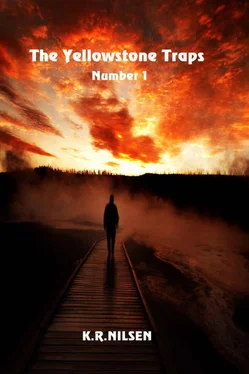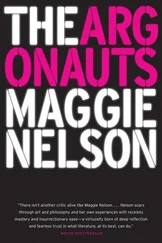The doctor touched the platter containing the square of corn bread and the small slab of dried meat. He inched it toward Harland. “You are eating a diet the majority of which is corn. Would that be correct?”
“We don’t have anything too much else to eat.”
“It’s making you sick, Mr. Sven, very sick. But we can remedy that.”
Abel pulled the anemic fare away from the farmer leaving only the full meal before him. “Harland, please, eat all you want. This is a complete meal. A few of these and your illness will go away.”
Harland raised his fork but hesitated.
“It’s okay, Harland. Go ahead. Some of us haven’t eaten much at all in the last twenty-four hours either. We’re going to join you.”
More plates of food were brought to the table. Max and Oleg joined Abel and Harland. Penny sat down with a cup of hot tea. The doctor remained, too.
Abel took a bite of his meal, and gestured to Harland to get started on his. The farmer lowered his face to his plate and was about to shovel the food into his mouth, when he stopped abruptly and glanced at everyone around him. “People in these parts, we say grace before a meal,” he said cautiously. “Always do.”
A smile of understanding brightened Abel’s face. “Of course, Harland. We would be pleased if you said grace.”
The man who had spent an entire lifetime with his hands and feet in black fertile soil grimaced and closed his eyes. He seemed to suspend in time before he broke his silence. “Dear Lord, we give you thanks for your gifts from the soil, for your bounty from this great and fertile land that you have made. Amen.”
A chorus rose from the throats of those seated with Harland: “Amen.”
Harland collapsed over his food, shoveling the sustenance into his mouth as fast as he could chew and swallow. Gulping, he took a breath and coughed his throat clear. “This is the best meal I’ve had in ages.”
“You can thank Penny, Harland,” said Abel.
The farmer turned to the woman among them. “Bless you, ma’am.”
Penny smiled warmly.
“When we’re done eating, Harland, we’d like to have you do one last thing,” Abel added. “Then we can all get some rest.”
Harland seemed resigned to his fate. “Whatever.”
“We’re going to take you on a tour. You will see exactly where this food comes from.”
The long rooflines of dozens of glass greenhouses emerged from the night as ruddy pink dawn advanced on the bluff ridge. The little powerhouse puffed white wood sawdust smoke into the atmosphere. Eight of the dozens of glass houses shimmered with electric light, activated by timers a half hour before sun up.
Abel and company shepherded Harland to the largest of the brightly illuminated greenhouses. The farmer read a sign on the door: Strawberry Cathedral.
Welcome to hippie heaven, Harland thought to himself, shaking his head.
The party descended four steps down a few feet below grade level into the hothouse. All were enveloped by tropical heat and the thick smell of moist green vegetation and sweet earth. The heat felt luxurious against Harland’s diseased skin. The building surrounded an emerald jungle eight feet in height. Tiny white flowers and pale pink and red orbs dotted the greenery.
Abel approached a wall of green and plucked a red object from a plant. He handed it to Harland. It was a large ripe, ruby strawberry.
“Don’t be shy, farmer. Take a bite.”
The man sank his teeth into the fruit. “Oh, mercy.” The flavor was overwhelming to a palette that hadn’t tasted something so sweet for months.
Harland stood bewildered. Abel had pulled the fruit from a wall of foliage rising eight feet from the ground. Cautiously, the farmer stepped forward and touched the leaves. There was something white and rigid behind the plants. He parted the green growth and examined what lay behind. A white plastic pipe stood fast in the soil and reached nearly to the roof glass above. Holes were drilled in the plastic and strawberry plants grew from the openings. It was a veritable strawberry tree.
The farmer spun about, seeking out the man who had forced him to come to the bluffs. “How many plants on one of these things?”
“Eighty to a tower, Harland.”
“Eighty? Can’t be.” Pragmatic to the core, Harland realized the strawberry tree took up the space that only two or three plants would if growing on the ground. Independency villagers were getting forty times the production from a few square feet of soil than a conventional grower.
“How many of these strawberry things have you got standing in the building?”
“There are 600 planting towers in this greenhouse alone.”
Harland did some quick calculating in his head. He was dumbfounded by the figure he arrived at. “You, er, you’ve got nearly 50,000 plants in here?”
“Yes, that’s about right.”
“That’s a hell of a crop in such a small space.”
“Well, Harland, we usually produce three crops, bringing new plants along all the time to take the place of those that reach the end of their useful life.”
“You get three crops? How is that possible?”
“This building is heated by hot water from our waste sawdust boiler. It’s plenty warm enough in here, even in the winter, to grow strawberries. We need to boost the light available to the plants half of the year in order to get reasonable yields.” Abel pointed to neon tubes glowing from the superstructure above. “The lights run eight hours day in the wintertime off a co-generator on the boiler. When we heat some of the greenhouses, we generate free electrical power thanks to a generator coupled to a little steam turbine on our sawdust boiler. The lights mimic the solar spectrum. Plants can’t tell the difference.”
“How many greenhouses have you got going like this?”
“Eight heated ones, with enough capacity in the boiler for two or three more.”
“All strawberries?”
“No, no. We’ve got tomatoes, cucumbers, melons, peppers, herbs and more growing, most like you see here, on towers or vine supports. We even raise tilapia fish and carp in tanks on the north wall of some of these buildings. A few lemon trees, too.”
The farmer’s skull rocked side to side. “I’ll be jiggered.”
“There’s more, Harland, much more. Let me show you what we can do without heat.”
Inside one of the dozens of unheated greenhouses, Abel removed a poly covering atop a cold frame on the floor. The space beneath the frame was brimming with greenery. As far as Harland could see in the building, there were transparent panels covering an ocean of leafy greens.
“What is this you’ve got growing here?” asked the grain grower.
“This happens to be miner’s lettuce. The Gold Rush 49ers lived on it; it grew wild at the mine sites. It’s as cold-hardy as anything on the planet. It yields all year ‘round inside the cold frames protected by the greenhouse. In winter, the plants think they’re in the Texas Panhandle in here, even though we don’t heat the building. As a matter of fact, we don’t heat the majority of them.”
“The plants will freeze,” Harland scoffed. “What good are they after that?”
“Protected as they are, they don’t suffer frost or wind damage. They go right through the winter perfectly fine.”
“You grow anything else this way?”
“Two dozen cold-tolerant edible plants can be cultivated like this with good success all winter: spinach, chard, kale, bok choi, mache, mizuna, and so on. You ate a bit of most of them in the salad you just had.”
Harland retreated into himself, weighing what he had witnessed since arriving at Independency and what Abel had just revealed to him. He was fascinated but unnerved as well. Ill thoughts crowded his mind. Everything spinning around him seemed to have been very carefully orchestrated. The episode in the brewery didn’t happen by chance. His removal to Independency had to have been planned, he calculated. And the odd choice of meals and the doctor’s diagnosis, they were certainly scripted. He was convinced all of it had been worked out in advance. This was a set-up. There had to be an ultimatum coming. They’d spring it on him soon, he fretted, when crushing fatigue had finally worn him to the nub.
Читать дальше










